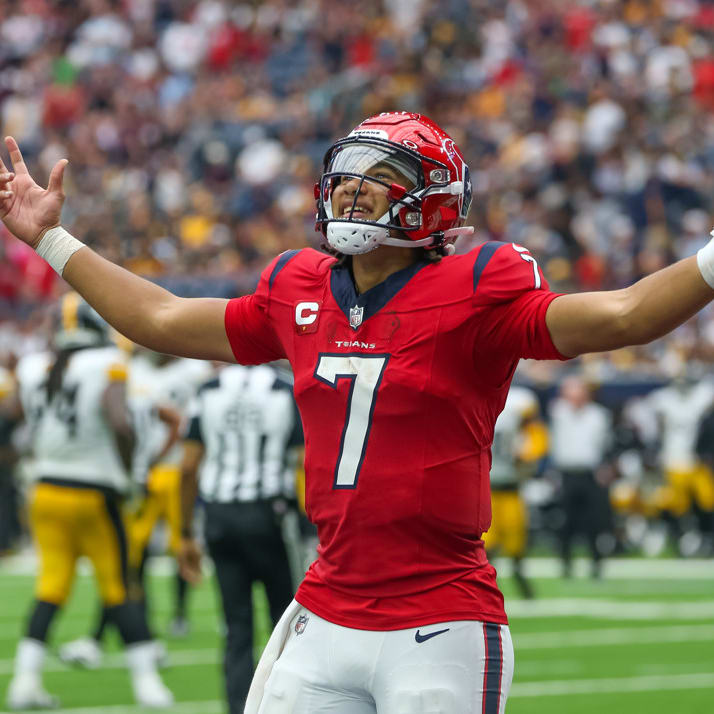This article is part of our Best Ball Strategy series.
I could sit here and tell you I'm drafting best ball teams in February and early March because earlier is better for finding an exploitable edge. Maybe that's true, maybe it isn't. Either way, the real reason I'm drafting teams this early should be obvious — I'm deranged.
The Pre-Draft BestBowl on BB10s.com is the contest that currently has my attention, featuring a $20,000 grand prize for a $10 buy-in. The downside, of course, is that winning the top prize requires defeating 5,999 other teams. Earlier this month I wrote about my "shoot-for-the-moon" strategy for these large national tournaments with top-heavy payout structures. Now, let's see it in action, looking at the second team I've drafted (I'm taking a mulligan on the first one):
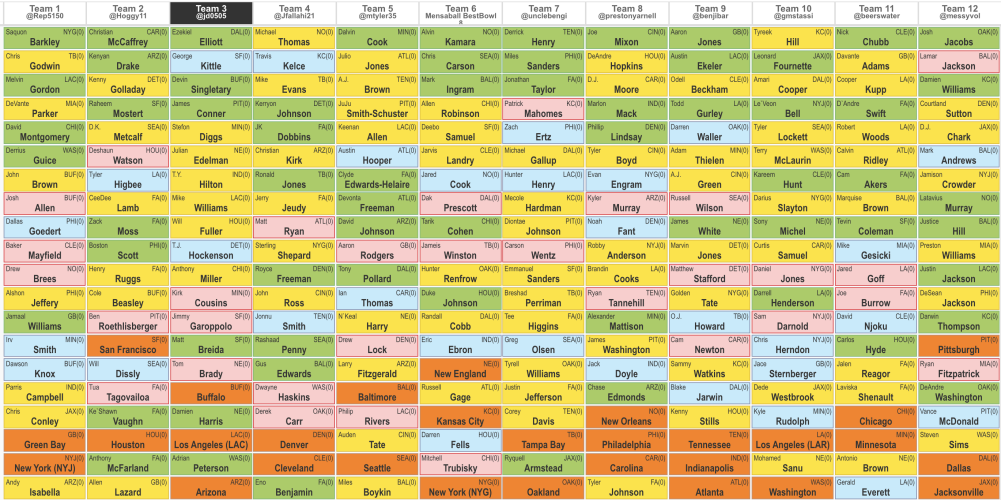
Round 1 (No. 3) - RB Ezekiel Elliott, 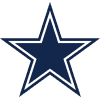 Dallas Cowboys
Dallas Cowboys
With Saquon Barkley and Christian McCaffrey off the board, my decision came down to Elliott or Dalvin Cook, the latter of whom offers superior explosiveness but inferior durability. Plus, Elliott is only three weeks older and the Cowboys' offensive line is much better than Minnesota's. I really couldn't have gone wrong either way, as both backs offer the upside for 2,000 total yards and 20 touchdowns.
Round 2 (No. 22) - TE George Kittle, 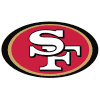 San Francisco 49ers
San Francisco 49ers
I love grabbing a premium tight end in best ball, considering the non-injury floor for Kittle or Travis Kelce is just as high — or perhaps even higher — than the ceilings for any of their
I could sit here and tell you I'm drafting best ball teams in February and early March because earlier is better for finding an exploitable edge. Maybe that's true, maybe it isn't. Either way, the real reason I'm drafting teams this early should be obvious — I'm deranged.
The Pre-Draft BestBowl on BB10s.com is the contest that currently has my attention, featuring a $20,000 grand prize for a $10 buy-in. The downside, of course, is that winning the top prize requires defeating 5,999 other teams. Earlier this month I wrote about my "shoot-for-the-moon" strategy for these large national tournaments with top-heavy payout structures. Now, let's see it in action, looking at the second team I've drafted (I'm taking a mulligan on the first one):

Round 1 (No. 3) - RB Ezekiel Elliott,  Dallas Cowboys
Dallas Cowboys
With Saquon Barkley and Christian McCaffrey off the board, my decision came down to Elliott or Dalvin Cook, the latter of whom offers superior explosiveness but inferior durability. Plus, Elliott is only three weeks older and the Cowboys' offensive line is much better than Minnesota's. I really couldn't have gone wrong either way, as both backs offer the upside for 2,000 total yards and 20 touchdowns.
Round 2 (No. 22) - TE George Kittle,  San Francisco 49ers
San Francisco 49ers
I love grabbing a premium tight end in best ball, considering the non-injury floor for Kittle or Travis Kelce is just as high — or perhaps even higher — than the ceilings for any of their position mates. Kittle went over 1,000 yards despite missing two games last season, and I think it was rather fluky for a 6-foot-4 superstar tight end to account for just 17.9 percent of his team's receiving touchdowns (compared to 26.1 percent of receiving yards).
Kittle's 28 percent target share in his 14 active games was fourth-largest in the NFL, behind only Michael Thomas (32 percent), DeAndre Hopkins (30 percent) and Davante Adams (29 percent). Even Kelce was only at 24 percent, though he obviously was taking his slice from a tastier pie.
Round 3 (No. 27) - RB Devin Singletary, 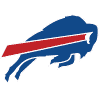 Buffalo Bills
Buffalo Bills
I was dismissive of Singletary last year, turned off by the previous NFL results for running backs with his combination of short stature (5-foot-7) and a poor 40 time (4.66). Of course, most of the guys in that category were late-round picks or UDFAs, so maybe I should've given more weight to successful cases drafted in the same range as Singletary — namely Brian Westbrook and Devonta Freeman.
A Westbrook comp feels ambitious even after the strong rookie season, but a peak similar to Freeman's is reasonable. While it wasn't easy to pass on Mike Evans and Jonathan Taylor at No. 27 overall, the ultimate commodity in fantasy football is a three-down RB, something that Singletary just might be in 2020.
Post-combine update: Should've drafted Taylor. Can't say I wasn't warned...
Friendly reminder that Thursday is your last chance to select Taylor in the third round of best ball drafts. Also will be the last chance to draft AJ Dillon in the 20th https://t.co/NrIpauOUTp
— Mario Puig (@rotowiremario) February 25, 2020
Round 4 (No. 46) - RB James Conner,  Pittsburgh Steelers
Pittsburgh Steelers
Conner is just two years removed from a breakout season where he averaged 113.1 yards, 4.2 receptions and 1.0 touchdown per game. The sheer quantity of injuries is starting to become a concern, but none of the issues that plagued him in 2019 is considered serious enough to linger into the offseason program. With Ben Roethlisberger (elbow) expected back under center and both Benny Snell and Jaylen Samuels disappointing last season, Conner was arguably my best and last chance to find a three-down workhorse with double-digit TD potential. I say "arguably" because J.K. Dobbins was still available and also would've been a nice pick.
Round 5 (No. 51) - WR Stefon Diggs, 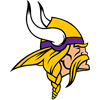 Minnesota Vikings
Minnesota Vikings
Is it crazy to believe Diggs — entering his sixth NFL campaign — might have a WR1 fantasy season in him? It didn't happen in 2019, but what did happen was a rediscovery of his prowess as a deep threat, culminating in career-high marks of 17.9 yards per catch and 12.0 per target. On the one hand, both of those numbers scream regression. On the other, isn't it possible he combines the big plays from 2019 with the high-volume possession work from 2018 (6.8 catches per game) and 2016 (6.5)? I say yes.
Stefon Diggs aDOT by year (per https://t.co/p07ayTIqtk):
2015: 10.6
2016: 8.5
2017: 11.5
2018: 8.6
2019: 15.1 👀Now imagine if he gets the short volume (2016, 2018) AND the deep passes (2019) in the same season?
There's still a WR1 fantasy season waiting to happen here. https://t.co/vLH8531Rkl
— JerryDonabedian (@JerryDonabedian) February 19, 2020
Stefon Diggs' 2019 #ReceptionPerception success rate vs. coverage scores:
vs. man: 76.5%
vs. zone: 84.3%
vs. press: 79.1% (career best)He's now finished above the 93rd percentile against man coverage for three-straight years. He is the best route runner in the NFL.
— Matt Harmon (@MattHarmon_BYB) February 28, 2020
Round 6 (No. 70) - WR Julian Edelman,  New England Patriots
New England Patriots
Edelman just had the best fantasy season of his career, so it's only natural for his ADP to be higher 30 spots lower than it was last year. Wait... what?
People do know that the Patriots will still play 16 games and throw passes even if Tom Brady isn't on the team? Also, there's still a chance Brady re-signs with New England. Heck, the odds from William Hill suggest he's more likely to stay than leave...a sentiment I tend to agree with, regardless of the latest rumor mill churning.
Round 7 (No. 75) - WR T.Y. Hilton, 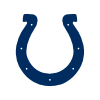 Indianapolis Colts
Indianapolis Colts
Hilton is a bit similar to Conner, dropping about 30 spots relative to 2019 ADP in the wake of an injury-marred campaign. I think there's a perception that small = injury-prone, along with some recency bias because Hilton's latest season was his least healthy. He missed four games in seven pro seasons prior to 2019, and while his age (30) entails some risk that he's breaking down, Hilton is just two years removed from averaging 90.7 yards per game.
Plus, there's a pretty good chance he gets a QB upgrade from Jacoby Brissett, who finished last season ranked 20th in QBR (52.1), 26th in completion percentage (60.9), 28th in YPA (6.6), 32nd in PFF grade (59.2) and 30th in deep-pass accuracy (34.9 percent per PFF). A strong offensive line is also useful for a deep threat, and the Colts shouldn't have any issues in that regard now that left tackle Anthony Castonzo has decided to play for at least one more season. Castonzo and freak right guard Quenton Nelson are the leading forces on an O-Line that placed No. 3 in PFF's 2019 rankings.
Round 8 (No. 94) - WR Mike Williams, 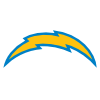 Los Angeles Chargers
Los Angeles Chargers
This is the first pick that makes me say "meh". Williams is stuck on a roster that restricts his volume ceiling, potentially catching passes from Tyrod Taylor, Justin Herbert or future legend Easton Stick. I guess there's also a chance the Chargers sign Tom Brady or Jameis Winston, but I wouldn't recommend betting on it. And while Hunter Henry technically can become a free agent, the Chargers would be stupid not to use a franchise tag, given that the price for tight ends ($11 million) is perfectly reasonable. Henry, Keenan Allen and Austin Ekeler should combine for 20-to-25 targets per game, leaving about a dozen for the rest of the team.
In my defense, this felt like an awkward spot in the draft, with some of my favorite targets — Kyler Murray, Marquise Brown, Dak Prescott, Russell Wilson, Mecole Hardman — coming off the board earlier in the eighth round. It was too early to draft a third-tier QB and too late to draft a second-tier QB or a promising young running back. I'm not even sure I'd change my pick if I could have a do-over.
Round 9 (No. 99) - WR Will Fuller, 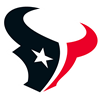 Houston Texans
Houston Texans
If you've ready my work in the past, you probably know that I believe the "injury-prone" label is overused. This, however, is one of those undeniable cases where we have a substantial body of evidence: multiple absences in each of four seasons, and 22 missed games overall. The book on Fuller is pretty clear: he's really fast, he gets open with ease, he drops some deep balls and he misses some games.
One of those years he'll actually stay healthy, or at least match the 14 games he played as a rookie. When that happens, we should be looking at WR2 production, considering he's averaged 4.3 catches for 66 yards and 0.61 touchdowns in 23 career games with Deshaun Watson at quarterback (including playoffs). I also like the idea of stacking Watson, Fuller and DeAndre Hopkins on best ball teams, given that the Houston offense has been much better whenever Fuller has been available.
Deshaun Watson's dropback splits with Will Fuller on/off the field in 2019:
On: 337 plays, 78.2 EPA
— Kevin Cole (@KevinColePFF) December 26, 2019
Off: 247 plays, -4.3 EPA
Three year trend now
2018
On: 249 plays, 48.5 EPA
Off: 483 plays, 27.8 EPA2017
— Kevin Cole (@KevinColePFF) December 26, 2019
On: 142 plays, 38.0 EPA
Off: 125 plays, 11.2 EPA
Round 10 (No. 118) - TE T.J. Hockenson 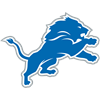 Detroit Lions
Detroit Lions
This feels a bit early for a second tight end on a team with Kittle, but I liked the value at No. 118 getting the last guy available from a positional tier. The other guys I view similarly are Dallas Goedert (No. 97), Noah Fant (No. 104) and Mike Gesicki (No. 110), all of whom were long gone at this point. As a bonus, the Hockenson pick gave me the flexibility to draft a third defense or seventh wide receiver instead of a third tight end in the late rounds.
Round 11 (No. 123) - WR Anthony Miller, 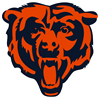 Chicago Bears
Chicago Bears
A popular breakout candidate last year, Miller was slow to recover from offseason shoulder surgery and later hurt his ankle during training camp. He finally pulled things together in November with 33 catches for 431 yards and two touchdowns over a five-week stretch, only to get shut down Week 16 and then re-injure his shoulder Week 17. The second surgery is believed to come with a shorter recovery timeline than the first, and Chicago's absence from the playoffs allowed Miller to go under the knife in late December instead of late January.
He may be limited during the offseason program, but the 25-year-old should at least be a step or two ahead of where he was last summer. Mitchell Trubisky is an obvious drawback here, so I'm hoping the Bears add someone like Andy Dalton, or even Case Keenum. With limited cap space and limited draft capital, Chicago won't necessarily prioritize a replacement for Taylor Gabriel, who was released in February.
Round 12 (No. 142) - QB Kirk Cousins,  Minnesota Vikings
Minnesota Vikings
A 31-year-old quarterback with 565 career rushing yards isn't necessarily what comes to mind when we think about upside, but I like the discount at QB19 after a volume-deficient 2019 campaign. Cousins accounted for 29 or more touchdowns in four consecutive seasons before that, and even in 2019 he averaged 260.7 passing yards and 2.1 TDs per game after a worthless September.
The bonus here is a correlation with Diggs, whose uber-efficient 2019 production helped Cousins produce career bests for yards per attempt (8.7), TD rate (5.9 percent) and interception rate (1.4 percent). I don't doubt that the Vikings will continue to emphasize their running game, but there's little-to-no chance of Cousins landing below 30 pass attempts per week again. My best guess is some regression to the mean for both volume and efficiency, leaving Cousins with a stat line that looks similar to his 2015 campaign in Washington: 4,166 yards, 29 TDs, 11 INTs.
Kirk Cousins' 2019 Accuracy Rankings:
• Completion Percentage: 5th
— Nick Olson (@NickOlsonNFL) January 30, 2020
• Adjusted Completion Percentage: 4th
• Completion Percentage Above Expectation: 3rd
• PFF's Uncatchable Percentage: 3rd-lowest
• PFF's Accuracy Percentage: 4th
Round 13 (No. 147) - QB Jimmy Garoppolo,  San Francisco 49ers
San Francisco 49ers
Garoppolo will have a little more mobility in his second year back from ACL surgery, and while the 49ers defense should remain excellent, it probably won't maintain the level of dominance that allows a QB to throw just 29.8 passes per game throughout a season. Plus, this is another case where I get a correlation with one of my pass catchers — George Kittle.
PFF shows Garoppolo with a league-high 61.3 completion percentage (19-of-31) on throws 20+ yards downfield in 2019, but those attempts accounted for just 6.5 percent of his overall volume, the lowest rate among qualified passers. Of course, he missed the one that counted most in the fourth quarter of the Super Bowl...
Round 14 (No. 166) - RB Matt Breida,  San Francisco 49ers
San Francisco 49ers
With six wide receivers, two quarterbacks and two tight ends already on my roster, I felt pressure to add a fourth running back. The hope here is that Tevin Coleman becomes an offseason cap casualty, a move that would free up $4.87 million for the 49ers (per OTC.com). Raheem Mostert earned the lead role with his fantastic play during the Super Bowl run, but we know Kyle Shanahan prefers to use multiple running backs, and we also know the 40-year-old coach does an excellent job designing his run game.
Round 15 (No. 171) - QB Tom Brady, Free Agent
After waiting until the 12th round to draft my first quarterback, there was no question I'd be triple-dipping at the position. I'm hoping to take advantage of a Brady-Edelman stack, but this is still a decent pick if the 42-year-old signs with the Raiders, Colts or Chargers. While I wasn't able to pull it off in this particular draft, I really like the upside of stacking Brady with both Edelman and N'Keal Harry (ADP 143). A second-year breakout from last year's first-round pick would allow the Patriots offense to get back on track.
Round 16 (No. 190) - D/ST  Buffalo Bills
Buffalo Bills
I usually wait until the final three rounds to draft a defense, but I was fine with grabbing a top-five unit once my only other need was at running back. There doesn't seem to be much logic behind ADP with late-round RB dart throws, so I figured I could get the guys I wanted later on.
Round 17 (No. 195) - RB Damien Harris,  New England Patriots
New England Patriots
Harris is one of those guys who probably would've been available later, but I wasn't willing to wait 19 picks to find out. Sony Michel was one of the worst lead backs in the NFL last season, ranking 40th in YPC (3.7) and 44th in yards after contact (1.6) among 47 qualified rushers. His failure gives Harris — a 2019 third-round pick — the chance to make his case for more carries this upcoming season.
Michel has missed just three games through two NFL seasons, but he's already had two minor knee surgeries as a pro, and he entered the league with a lengthy track record of medical issues from high school and college:
Michel's injury history:
— Injury Predictor (@InjuryPredictor) April 24, 2018
2011 - torn ACL
2014 - broken shoulder blade
2014 - sprained ankle
2016 - fractured left forearm (ATV accident)
2017 - sprained ankle
2017 - sprained left knee https://t.co/jj7afhBEu7
Round 18 (No. 214) - D/ST  Los Angeles Chargers
Los Angeles Chargers
The Chargers defense had a lot of hype last offseason but never really got off the ground. Part of that was star safety Derwin James missing most of the year with a foot fracture, and part of it was as simple as lousy play in the front seven. The good news? The Chargers have a crew of legit stars in James, Casey Hayward, Joey Bosa and Melvin Ingram, giving the defense a nice ceiling if it gets a bit of help during free agency and/or the draft. The Chargers are projected for $49 million of cap space, with TE Hunter Henry the only high-level free agent that needs to be re-signed.
Round 19 (No. 219) - RB Adrian Peterson,  Washington Redskins
Washington Redskins
Peterson probably deserves more credit fo producing 62.6 rushing yards per game and 4.2 YPC through two seasons in Washington. He hasn't gotten a ton of help from his blockers, nor has he played with a quarterback that forces opposing safeties to be cautious. We all know Washington wants Derrius Guice to be the lead back, but a ferocious running style combined with a troublesome history of knee injuries isn't a good mix. That's why the team exercised its 2020 option on Peterson's contract.
Round 20 (No. 238) - D/ST 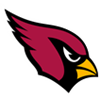 Arizona Cardinals
Arizona Cardinals
The Cardinals already have two elite defenders at premium positions: OLB Chandler Jones and CB Patrick Peterson. With the hard part of building a strong defense already out of the way, they can use their $39.7 million in cap space and favorable draft position (No. 8) to help fill out the other starting spots. The $39.7 million might not seem like a big number, but most of the teams with more space also have a bunch of key guys to re-sign, while the Cards' list of unrestricted free agents is basically Kenyan Drake + scrub city. Guys like Cassius Marsh, Joe Walker and Rodney Gunter should be cheap re-signings, or, better yet, addition by subtraction.









